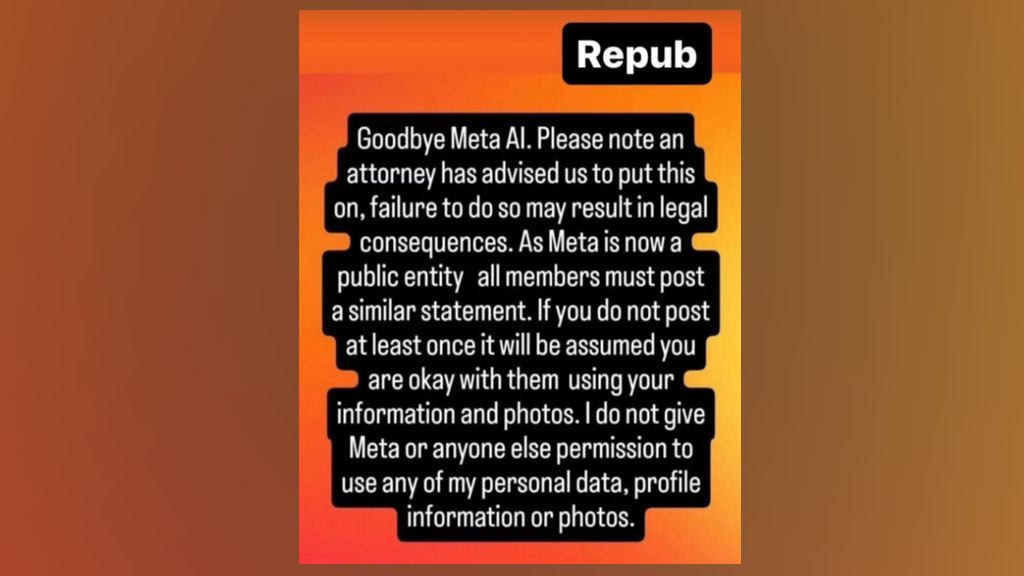

More than 600,000 people, including many celebrities, have fallen for a hoax claiming to deny Facebook and Instagram owner Meta the right to use their images for training artificial intelligence (AI).
Film stars James McAvoy and Ashley Tisdale, as well as former NFL player Tom Brady, are among those who re-shared the fake "Goodbye Meta AI" message on Instagram stories.
The hoax claims that by sharing the message, Meta would no longer be able to use their information.
In reality, Facebook and Instagram users who want to opt out of AI training can do so in their account settings - and posting about it does nothing.
Many of these messages have now been labelled "false information" by Lead Stories, one of Meta's third-party fact-checking sites.
The post appears to have been created in opposition to Meta's announcement in June that it will use public posts to train its AI model - but the company has confirmed to the BBC that posting the message has no impact on any user’s privacy settings.
“Sharing this story does not count as a valid form of objection,” a Meta spokesperson said.

Privacy posts
Lead Stories pinpointed the origin of the trend to a post on Facebook on 1 September, which used slightly different wording to the version that eventually went viral.
But it was not until this week - when large celebrity accounts began to share the post - that the craze took hold, with Google Trends displaying a steep spike in searches for the phrase "Goodbye Meta AI" after 24 September.
It is far from the first time that social media has been dominated by such "copypasta" - a term meaning a block of text that is "copied and pasted" frequently online.
The fact-checking website Snopes has covered several instances from the past decade of users declaring their privacy rights in public messages to no avail.
But it is rare to see quite so many high-profile accounts fall for the hoax.
Plans for other social media companies to train AI models on public posts have also been met with criticism, with LinkedIn this week reversing its decision to do so in the UK.




_updates-0.jpg)






_updates-0.jpg)
